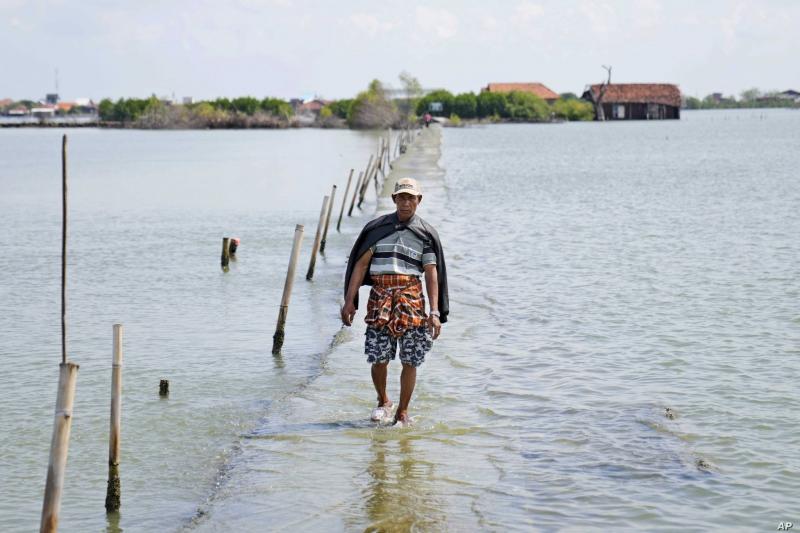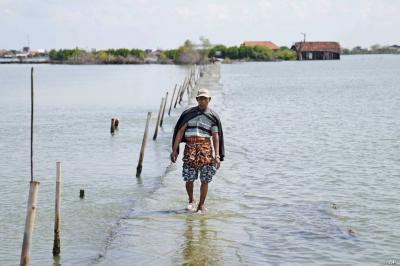The Cordillera, the largest mountainous region in the Philippines and considered one of the poorest and most marginalized areas by the Food and Agriculture Organization (FAO) of the United Nations, is suffering from another kind of hardship; the seasons there have become unfamiliar. The Washington Post reports that crops are no longer maturing at the usual times, the sun is hotter than ever, and the springs upon which the region has always relied for water have dried up. Beverly Longid, a local resident, stated that climate change has caused losses for her tribe, the Igorot. Agricultural lands have been damaged, children are starving, and natural seasons have changed. Longid calls for compensation for what has been lost, saying, "We barely contributed to this problem. But we, the developing countries, the indigenous peoples are bearing the brunt of the impacts of climate change."
The United Nations Climate Summit in Glasgow, Scotland, is experiencing pressure from poor countries on wealthier nations to pay for increasing damages caused by global warming. These countries have pointed to the rise in severe storms, hurricanes, droughts, and floods that affect their populations. This effort at the Glasgow summit aims to secure hundreds of billions of dollars annually for economies vulnerable to climate change, despite already struggling to attain the approximately 100 billion dollars pledged by global powers last year.
The funds previously pledged acknowledge that poorer countries bear less responsibility for climate change. These funds aim to assist developing countries in transitioning from fossil fuels and adapting to the realities of a hotter world. The Washington Post notes that civil society organizations and vulnerable countries often demand funding for "losses and damages" in international climate talks. With rising sea levels and devastating heat waves, along with shifting seasons claiming more lives and livelihoods in parts of the world, the issue has become more contentious than ever in the negotiations at COP26 in Glasgow.
In the same context, Reuters quoted Harjeet Singh, an advisor to the Climate Action Network and participant in the COP26 climate negotiations on behalf of developing countries, stating, "The steps taken to mitigate (the impacts of climate change) and adapt have been very slow. And now we have this huge and growing problem of losses and damages." He added that negotiations have focused so far on including terms like "losses and damages" in the official agreement text, noting that without some financial assistance, the costs of damages from climate change could bankrupt fragile economies and hinder their ability to contribute to climate change mitigation.
The Washington Post cited Mohamed Ado, director of the African Power Transition Research Center based in Kenya, stating: "This is indeed one of the biggest shortcomings of this process. We have clarity about the global target for reducing global warming. But we do not have a similar target... to help the world deal with some of the inevitable impacts of climate change."
A report released in 2020 by the International Federation of Red Cross and Red Crescent Societies, based in Geneva, found that extreme weather and climate-related disasters killed over 410,000 people in the last decade, most of them in low-income countries. Other research estimated that the annual financial needs for losses and damages in developing countries could reach between 290 billion to 580 billion dollars annually by 2030, according to the Washington Post. However, current funding levels allocated to survivors of earthquakes, volcanic eruptions, violent conflicts, and climate crises are less than one-tenth of that amount. Simultaneously, a study commissioned by the development agency Christian Aid estimated that climate damages could cost the most vulnerable countries five percent of their GDP by 2050.




